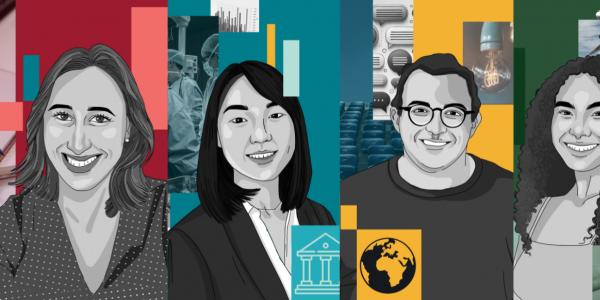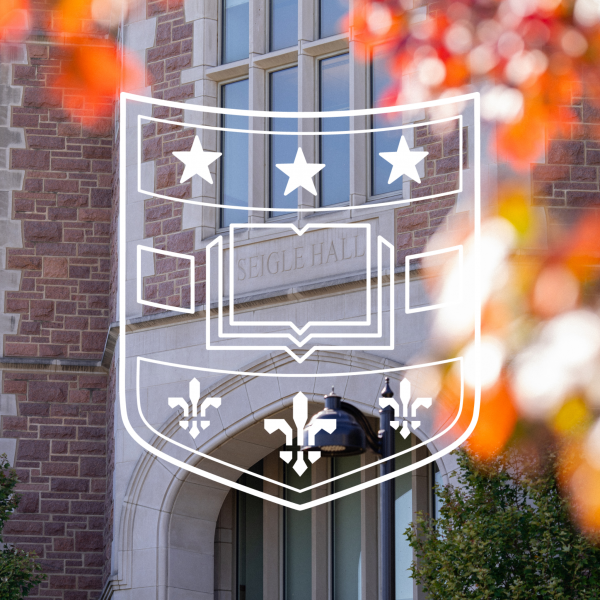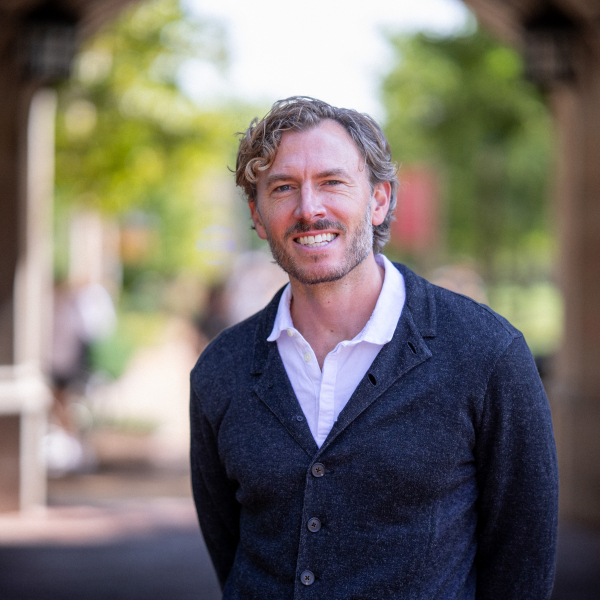Graduate school is often viewed as a stepping stone on a path to the ivory tower. But in Arts & Sciences, graduate education transcends these traditional boundaries, opening doors to new possibilities and diverse career paths.
The Office of Graduate Studies is dedicated to equipping students with the resources and skills they need to turn their degrees into gateways to industry, academia, and the arts, fostering a future where advanced knowledge serves as a bridge to real-world impact.
“Graduate study is exciting because it involves the creation of new knowledge,” said Sophia E. Hayes, vice dean of graduate education. “Our students become the creators, thinkers, and drivers of change. We’re committed to equipping them for their professional journey — whether in government, nonprofits, corporations, start-ups, or the academy.”
Here, six current and former students share glimpses of their graduate school experience.
The Political Scientist in the Newsroom: Min Hee Seo, PhD '20
When Min Hee Seo was wading through arduous statistical research for her political science dissertation in 2020, she couldn’t imagine her current job. As a senior health data scientist at U.S. News & World Report, Seo is responsible for the publication’s popular “Best Hospitals” rankings.
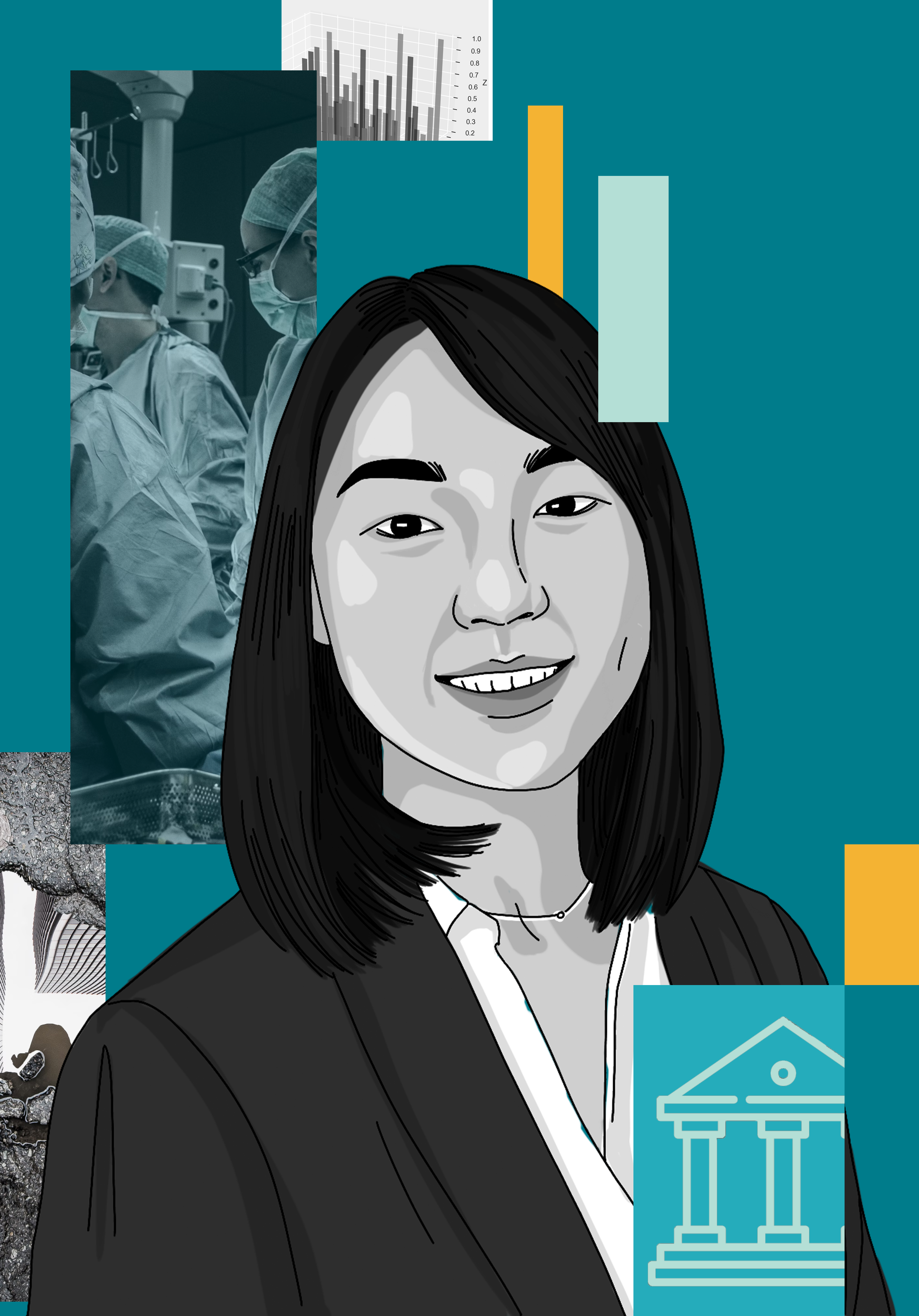
“Studying at WashU was challenging, and the learning curve for doing research was steep,” she said. “But I had really good peers and professors who helped me complete the work.” Seo’s dissertation explored whether local governments differ in the ways they provide fundamental services to residents based on the types of neighborhoods in which they reside. Her work included a field experiment using St. Louis-area potholes.
This opportunity for data-driven social science research drew Seo to WashU. The Department of Political Science has a reputation for teaching graduate students the statistical skills to analyze data, she said. As a doctoral candidate, she learned how to gather data from local governments and work with “messy” data to generate important insights. “My dissertation work and the education I received at WashU is deeply connected with my current job,” she said. “Even though the subject matter is different, the methods I use for conducting quantitative analysis are quite similar across these two fields.”
Seo is proud her “Best Hospitals” analysis helps people make more informed healthcare decisions. She believes it was the combination of her statistical skills and her dissertation’s focus on equitable outcomes that made her a standout candidate for a job at U.S. News. “Measuring health equity is a growing trend in healthcare research,” she said. “There will be more work on this in the coming years.”
The Public Scholar: Heather Aliano
Heather Aliano decided to pursue her doctorate in philosophy-neuroscience-psychology (PNP) after a challenging experience showed her the profound impact of the field. When Aliano’s husband suffered a mental health crisis following a difficult tour of duty with the Air Force, the family sought help through a UCLA program offering comprehensive psychological treatment for veterans. The program provided a series of scans and therapies that aided her husband and changed Aliano’s perception of PTSD.

“I now understand that it’s not just an emotional thing,” she said. “There are structural changes that happen, functions in the brain that impact it.”
As her interest in cognitive science grew, she began to dig deeper, taking online classes and earning a graduate certificate in philosophy from the University of Edinburgh. When the family moved to the St. Louis area, Aliano was thrilled to discover WashU’s graduate PNP program, a perfect match for her budding interests.
After gaining admittance to WashU, Aliano learned of a new program for graduate students launching this fall. A&S CREATES offers PhD students a chance to participate in a cross-departmental learning community and get first-hand experience translating their scholarly research for new audiences. It was yet another opportunity that seemed custom-made for Aliano’s pursuits.
In her prior career, Aliano spent years working in political and advocacy communications, where she translated policy, research, and data into accessible, engaging information. As a member of the inaugural A&S CREATES cohort, Aliano and 21 other PhD students will focus on public scholarship. She hopes her research — and her efforts to make it approachable to those outside academia — will benefit the PTSD-survivor community, including her husband.
“Our research has the potential not just to contribute to academia, but to advocate for others, to change public opinion, and to change policy,” Aliano said. “But this is only possible if we can communicate our findings and ideas to a broad audience.”
The Research Partner: Asha Larson-Baldwin
The seeds of Asha Larson-Baldwin’s journey to WashU were planted in 2017 when she launched a campaign in her hometown of Greenville, South Carolina, to rename her high school, which was named for a slaveholding Confederate general. That experience led her to study advocacy and justice at Furman University, where, as an undergraduate, she worked with scholars from African American studies, poverty studies, sociology, and communications.
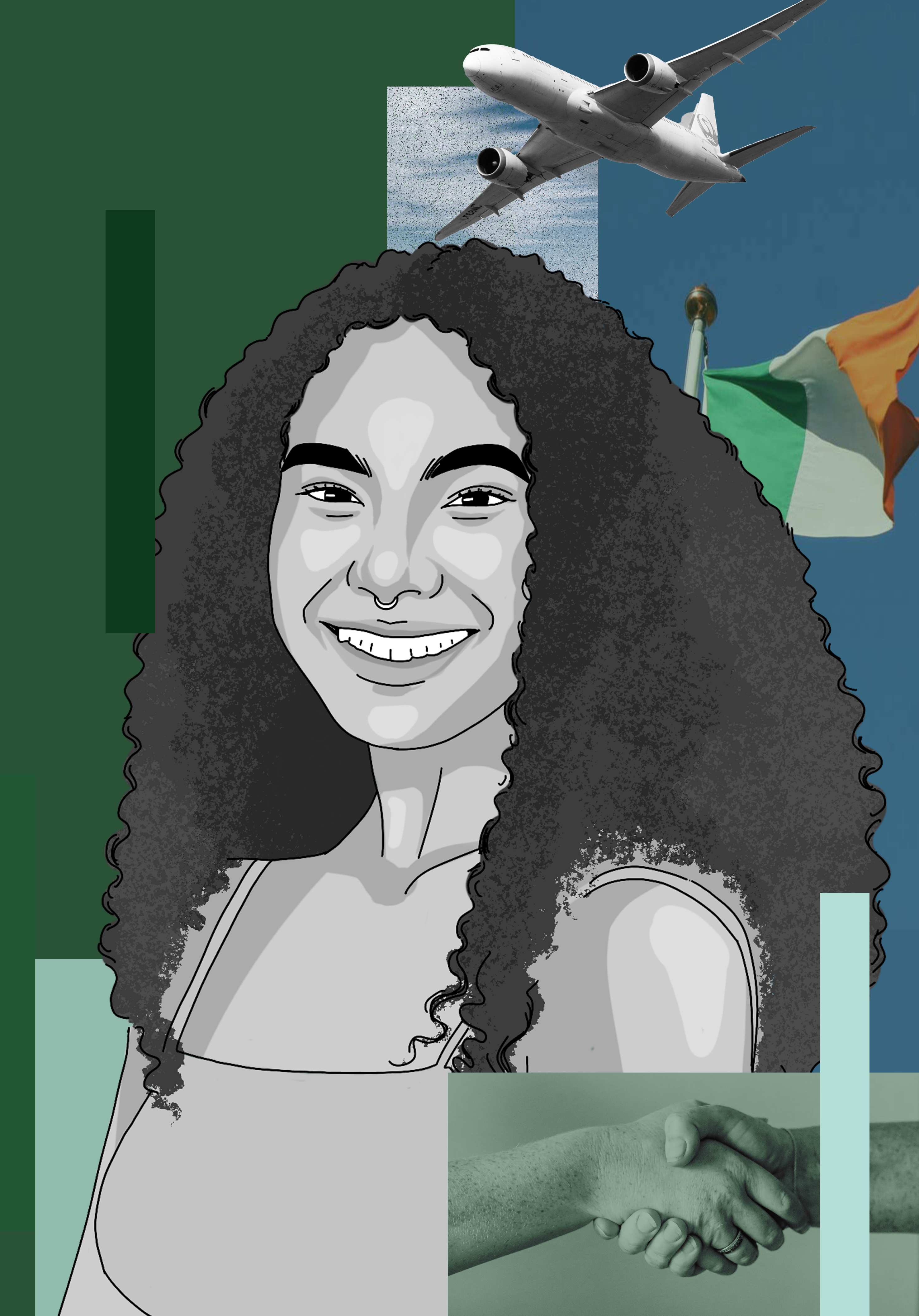
Next, she spent a year as a Mitchell Scholar, studying public history in Belfast, Northern Ireland. Much like her hometown of Greenville, Belfast has grappled with how to memorialize and communicate its dark history.
When Larson-Baldwin decided to pursue a PhD, she chose WashU because her interests aligned with those of David Cunningham, professor of sociology. Cunningham has researched conflicts surrounding Confederate monuments and other contested memory sites. To her surprise and delight, their mentoring relationship ultimately evolved into a reciprocal one. “David wanted to work in Belfast on issues of symbolic landscapes and collective memory, and I was able to connect him to my advisors and mentors there,” she said. “We are now building a relationship across the Atlantic, which may turn into a longer-term partnership.” In July, the two traveled to Belfast for a month of field research.
While mentoring has always been an interdisciplinary endeavor for Larson-Baldwin, a new Office of Graduate Studies program — Mentoring Your Way — launching this fall will provide even more opportunities for her and others to receive support from talented scholars across disciplines. “I want to be willing to push my discipline into the future and approach questions using methods from other fields.”
The Biologist in Business: Kari Miller, PhD ‘22
Kari Miller always knew she wanted a career outside of academia. “I respect and see the value of academic research, but I wanted to work on something that was immediately commercially relevant,” she said.
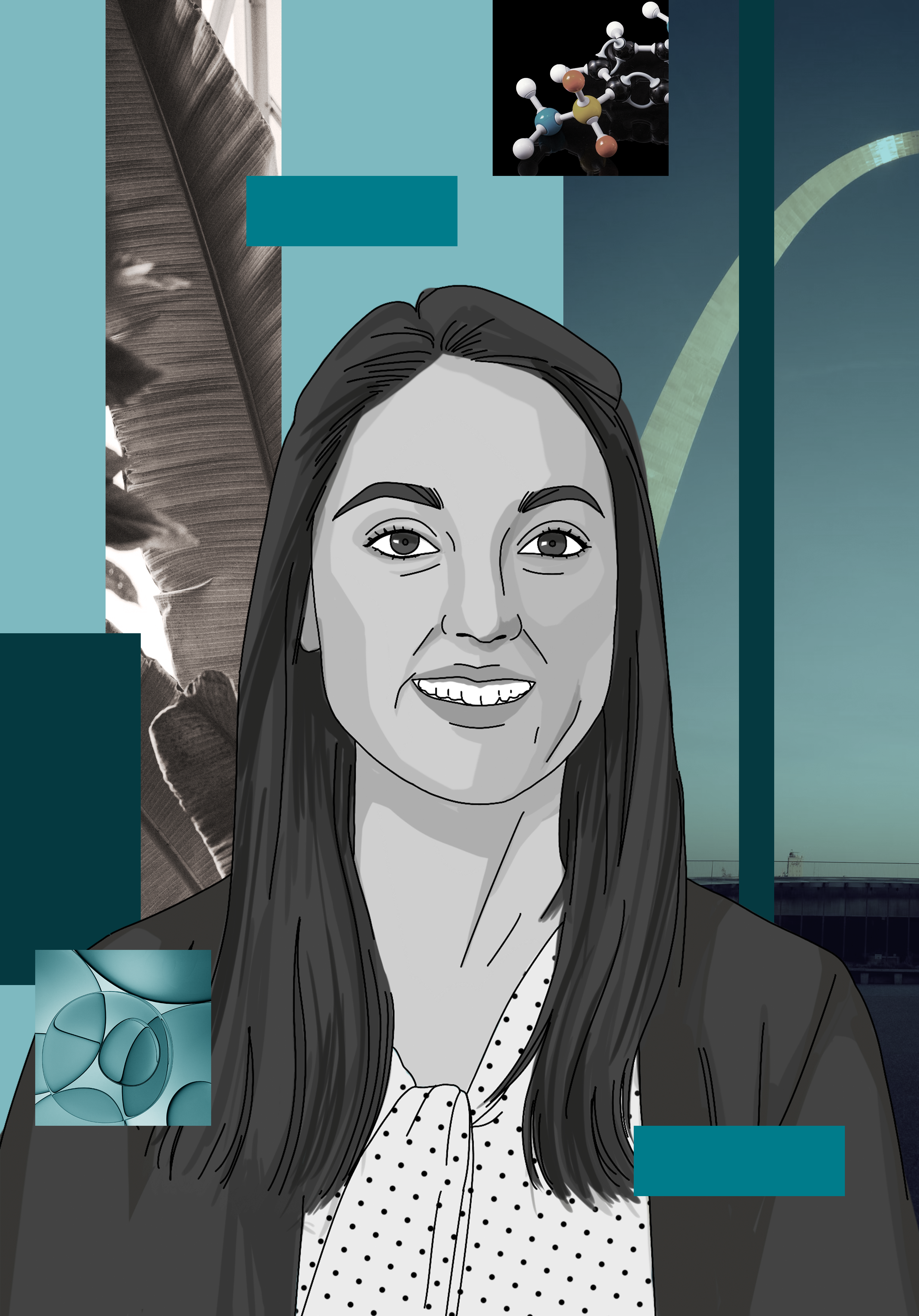
After earning a doctorate in biology, Miller went to work in the burgeoning St. Louis-based bioscience industry as an investment associate at BioGenerator, where she’s part of a team analyzing agriculture-based technology companies. That work involves evaluating the commercial potential of a startup's technology and providing ongoing support to ensure the success of existing investments.
Miller’s graduate education was pivotal in her success in a competitive industry. She seized the opportunity to conduct research across fields, combining biology with computational mathematics and physics. WashU’s challenging courses in the plant and microbial sciences program were especially valuable, she said. Miller also found ways to enhance her knowledge outside of the lab, taking advantage of WashU’s Science Communication Credential program and getting involved in the Biotechnology and Life Sciences Advising (BALSA) group, a student-run consulting organization.
All of these experiences helped Miller translate complex scientific ideas into easily accessible concepts, skills she believes set her apart from other job candidates. “Being able to read scientific literature, understand the conclusions, and summarize them in a reasonable amount of time is something I use every single day.”
The Peer Mentor: Lukas Daniels-Day
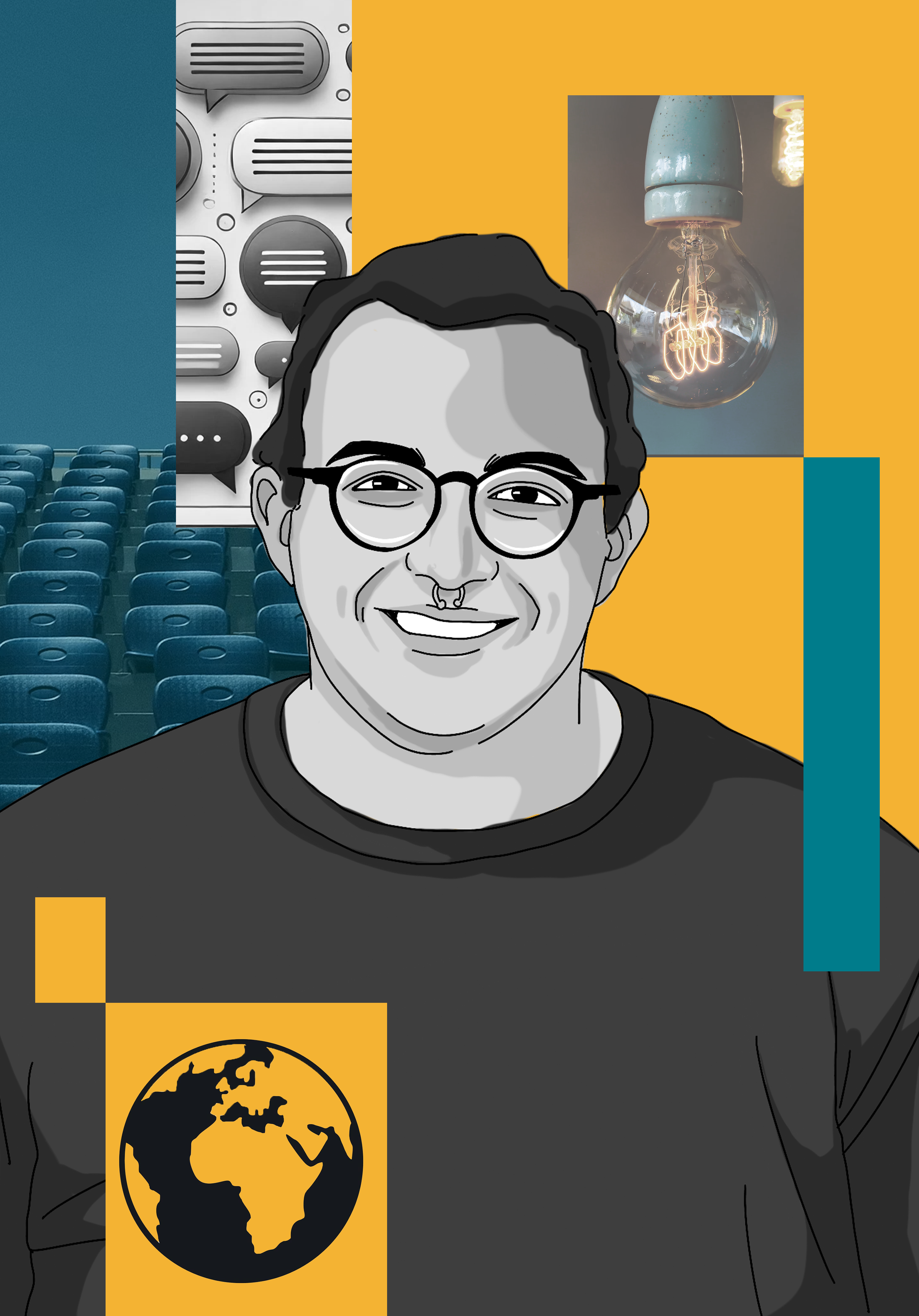
As a third-year PhD student, Lukas Daniels-Day has experienced firsthand how peer support can provide ballast during the challenging moments of graduate education. When he began his anthropology graduate program in 2022, he relied on peer mentors to help him navigate a challenging living situation in his first semester.
“I felt overwhelmed by the new surroundings and burdens,” he said. “Having peer mentors who were a year or two ahead of me in the program provided support I didn’t realize I needed. They also taught me how to advocate for myself with the department and my advisor.”
As one of two designated peer mentors in anthropology — and one of 40 in Arts & Sciences for graduate students — Daniels-Day now gets to pay it forward, planning social and professional development events for two dozen first- and second-year graduate students in his department. Many students he advises come to WashU from other countries and need help navigating unfamiliar situations such as health insurance.
“Thinking back, it shocks me that I didn’t think I would need peer mentorship,” he said. “But it was really useful having a person you can ask for help even before you’ve fully built a friendship. The peer mentoring program gave us space to interact.”
Graduate students now have even more opportunities to find and cultivate mentors. A new program matches students to peer mentors in different programs to provide tailored support to students in smaller departments and those from underrepresented backgrounds. “The scaling up of mentoring opportunities will empower even more students to share their stories and connect,” Daniels-Day said.
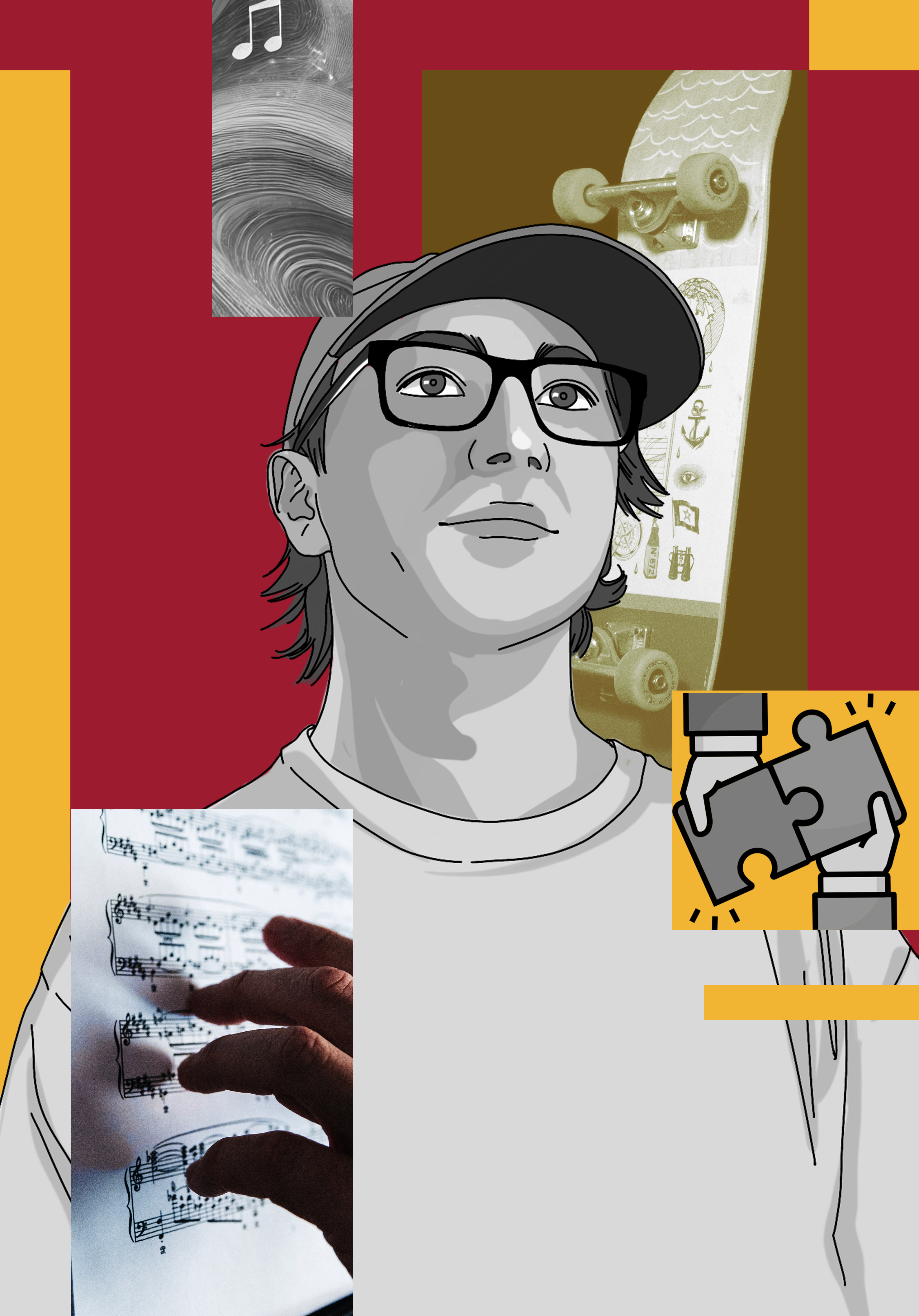
The Fellow: Bryce Noe
Arts & Sciences attracts the best and the brightest graduate students with the Dean’s Distinguished Graduate Fellowship (DDGF), which supports master’s and PhD candidates with additional funding and a strong community of scholars.
Musicology PhD student Bryce Noe was selected for the fellowship’s first cohort in 2022. Noe studies choreography and sound in sports settings, combining his research with his favorite activity — skateboarding. The DDGF has helped him forge valuable relationships outside the music department. “The fellowship fosters academic space where we can break our disciplinary bubble and cultivate relationships with people in other departments.”

